Share
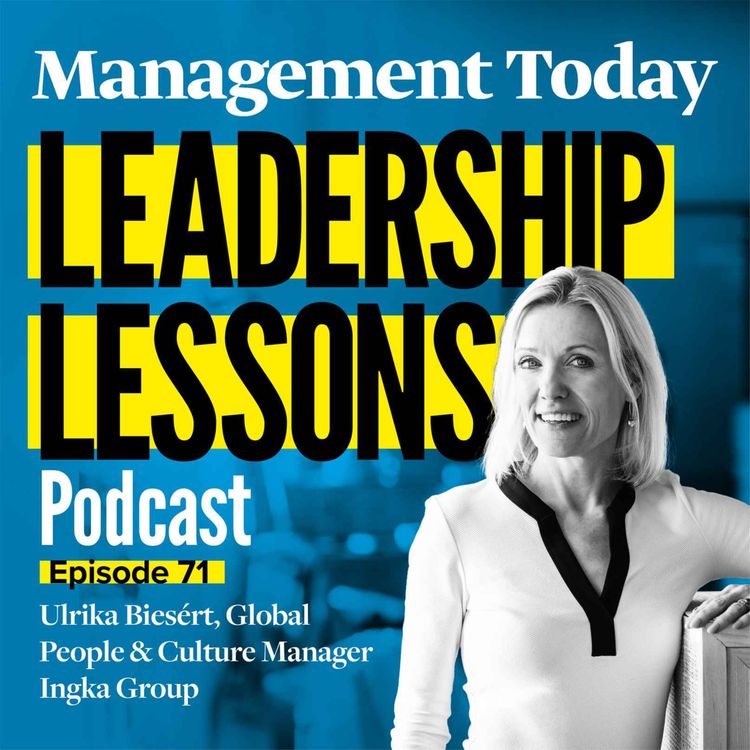
Management Today's Leadership Lessons
Ikea’s ‘human-centric’ company culture
Season 1, Ep. 71
•
Ikea is known by customers for its iconic flat-pack furniture, maze-like stores, and delicious meatballs – but when Ingvar Kamprad founded the company in 1943 he also wanted to implement a strong company culture of inclusivity and openness.
Today, that same culture is now in the capable hands of global people and culture manager, Ulrika Biesért, who is tasked with taking Kamprad's progressive ideals into the 21st Century.
On this week's episode, we discuss how her career as a social worker and family counselor inspired a career in leadership, why she calls employees 'co-workers' regardless of their position, and how Ikea's culture contributes to its overall growth.
Credits:
Presenter: Éilis Cronin
Producer: Inga Marsden
Artwork: David Robinson
More episodes
View all episodes
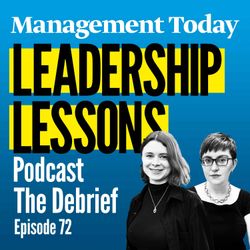
72. Podcast: Organic growth stories and the value of heritage
14:02||Season 1, Ep. 72In this week’s episode, MT’s editorial team discusses when a brand should make a break with its past identity and what two leading companies can teach us about organic business growth.Jaguar has been having a time of it recently – or has it? Certainly, the company has had to face a barrage of negative headlines, even as publicity for the carmaker has swelled to seldom-seen levels. But, as time goes on, opinion on its rebrand appears to be increasingly divided – not least among the leaders that responded to an MT callout for comments. Is Jaguar’s seeming departure from its heritage a gamble or a smart strategic pivot in a world where nostalgia is an ever-declining currency? We bring you a flavour of the debate.Organic growth strategies might seem like the slightly drab cousin of headline-grabbing acquisitions – but if the advice in some circles has been to buy not build, Paul Simpson offers an alternative view. In his latest piece for MT, he examines the growth stories of four leading companies. These strategies are not flashy, fast-paced or thrilling, and command little fanfare, but the diligent commitment to incremental wins they embody has paid dividends in the long-run. We consider two of them.Links:https://www.managementtoday.co.uk/four-leading-companies-teach-us-organic-business-growth/indepth/article/1899470https://www.managementtoday.co.uk/mt-asks-when-company-break-its-past-identity/food-for-thought/article/1900155https://www.managementtoday.co.uk/35-women-35-open-entries/women-in-business/article/1899109Credits:Presenters: Éilis Cronin and Antonia Garrett PeelProducers: Inga Marsden and Til OwenArtwork: David Robinson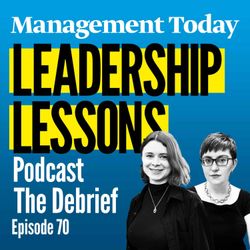
70. MT’s Top Consultancies, CBI conference, and can AI transform business models?
15:33||Season 1, Ep. 70On this week’s episode, we discuss what we learned from the CBI conference, MT’s new list of its Top 100 Management Consultancies, and why we’re not seeing gen AI transform business models.Last week, Antonia Garrett Peel attended the Confederation of British Industry’s annual conference to watch two political heavyweights – Chancellor Rachel Reeves and Conservative leader Kemi Badenoch – present their different visions for the economy. Of course the CBI was also keen to, as chair Rupert Soames put it, “whisper a few…messages into the government’s ear”. Antonia outlines the CBI’s warning for business and discusses whether Reeves is already backtracking on a commitment made at the conference.MT has unveiled its new list of its Top 100 Management Consultancies, providing a detailed overview of the leading UK firms at a turbulent time for the sector. Many of the factors driving change – such as evolving client expectations and an end to a post-pandemic boom in business – are explored in a piece written by Gavin Hinks for MT. Éilis Cronin outlines what some of these shifting client priorities are and how Covid and gen AI have impacted the client-consultant relationship.ChatGPT is officially two years old, and since its inception we have witnessed the astronomical rise of gen AI technologies. But why have we – for the most part – not yet seen them transform business models? That’s the question addressed by Adam Gale in his latest piece for MT, which explores how businesses currently use these technologies and why leaders might need to undergo a mindset change to get the most out of them. We discuss.Links:https://www.managementtoday.co.uk/cbi-chair-warns-reeves-government-needs-business-deliver-its-promises/down-to-business/article/1897739https://www.managementtoday.co.uk/state-uk-consulting-sector/indepth/article/1898140https://www.managementtoday.co.uk/why-arent-seeing-generative-ai-transforming-business-models/indepth/article/1897403Credits:Presenters: Éilis Cronin and Antonia Garrett PeelProducer: Inga MarsdenArtwork: David Robinson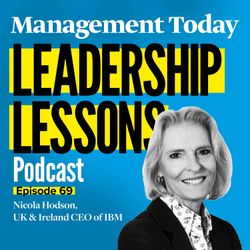
69. IBM UK’s CEO on the next era of computing
29:05||Season 1, Ep. 69Just when you think you’ve got your head around AI, a new type of technology comes racing around the corner - quantum computingAccording to IBM’s UK and Ireland CEO, Nicola Hodson, quantum computing is “the next era of computing”. It allows the possibility of solving problems that either cannot be dealt with, or would take too long to deal with, through “conventional computing”.While it is still in the experimental phase, a 2020 McKinsey report estimates that there will be around 5,000 operational quantum computers by 2030.Therefore on this week's episode, Nicola and I discuss the five things leaders should focus on in order to thrive in this AI pre quantum age.Credits:Presenter: Éilis CroninProducer: Inga MarsdenArtwork: David Robinson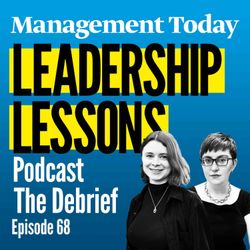
68. Podcast: Tariffs, supply chain fears and the ingredients in M&S’s turnaround
10:12||Season 1, Ep. 68On this week’s episode of The Debrief, MT’s editorial team discusses CEOs’ supply chain fears, what a new Trump presidency means for global trade, and how M&S bounced back.“There is arguably no change of administration in the world that has more of an impact on global trade than [that] in the US,” says Simon Geale, EVP at supply chain consultancy Proxima. So, with Donald Trump having clinched a decisive victory against Kamala Harris, what can business expect from the incoming president? He’s called ‘tariff’ the “most beautiful word in the dictionary”, but will he really implement levies on foreign imports at the level and scale he’s proposed? We bring you the views of the experts. Marks & Spencer’s 2024 Christmas ad sees a drab lethargic scene metamorphose with the help of a magical snow globe into a sparkly festive extravaganza (all set to the sound of the Jackson Sisters’ ‘I Believe in Miracles’). As a metaphor for the company’s own transformation, it might be overkill – but the retailer has nonetheless undergone an impressive turnaround in the last few years, prompting CEO Stuart Machin to hail back in May “the beginning of a new M&S”. We discuss how the company got here.Links:https://www.managementtoday.co.uk/new-trump-presidency-bad-news-global-trade/down-to-business/article/1895394https://www.managementtoday.co.uk/supply-chain-threats-top-concern-majority-ftse-100-companies/indepth/article/1895514https://www.managementtoday.co.uk/marks-spencer-its-mojo-back/down-to-business/article/1895852Credits:Presenters: Éilis Cronin and Antonia Garrett PeelProducer: Inga MarsdenArtwork: David Robinson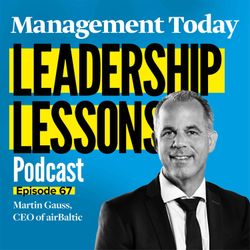
67. airBaltic's CEO on leading a turnaround at Latvia’s flag carrier
21:10||Season 1, Ep. 67In September, airBaltic outlined its hope to raise €300 million as it continues to prepare for a potential initial public offering that could take place as early as by the end of the year. The funds would support its ambition to double in size over the next five years.The outlook for Latvia’s flag carrier hasn’t always looked as promising, however. When CEO Martin Gauss joined the company in 2011, airBaltic was facing significant financial difficulties and the immediate question that confronted him was whether the business should continue at all.This week's guest on Leadership Lessons, Gauss explains the key decisions that helped get the airline's turnaround on track, how airBaltic has navigated through subsequent crises, and discusses handling criticism in the social media age.Credits:Presenter: Antonia Garrett PeelProducer: Inga MarsdenArtwork: David Robinson
66. Budget reactions and minimising reputational damage after a cyberattack
08:22||Season 1, Ep. 66On today’s episode, we hear some reactions to the autumn budget and discuss new research into the best way to mitigate reputational damage in the wake of a cyberattack.Given the seismic political developments of the past few days in the US, the autumn budget is starting to feel like a long time ago. But business leaders had a lot to say about the measures announced by new Chancellor of the Exchequer Rachel Reeves when we canvassed opinion last week. We bring you some CEO reactions and discuss why the hike in employers’ National Insurance contributions could impact wages.Cyberattacks are on the rise and threaten even the best-prepared organisations. Reputational damage can be one of the most significant (if also one of the hardest to quantify) ramifications of a cyberattack. Antonia Garrett Peel discusses new research into why organisations might benefit from adopting a ‘victimhood communication strategy’ in the wake of an attack.Links:https://www.managementtoday.co.uk/business-leaders-weigh-autumn-budget/down-to-business/article/1894195https://www.managementtoday.co.uk/research-claiming-victimhood-wake-cyberattack-minimise-reputational-damage/indepth/article/1894858Credits:Presenters: Éilis Cronin and Antonia Garrett PeelProducer: Inga MarsdenArtwork: David Robinson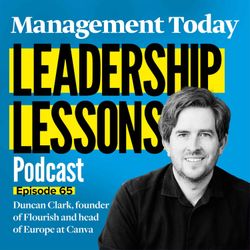
65. Finding your perfect M&A match
23:19||Season 1, Ep. 65Finding a perfect match during an M&A is no easy feat and something that Duncan Clarke, co-founder of Flourish and Head of Europe at Canva, experienced first hand. Having been both the acquired and acquirer, he has discovered what it takes to make a acquisition flourish. On today's episode, he explains why he prioritised shared values and long term vision over immediate financial gains during an acquisition and how he's making sure Flourish 'flourishes' amidst Canva's portfolio of brands.Credits:Presenter: Éilis CroninProducer: Inga MarsdenArtwork: David Robinson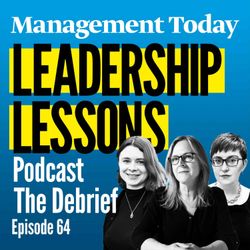
64. Podcast: The rise of disinformation and the chatbot invasion
19:03||Season 1, Ep. 64On this week’s episode of The Debrief, MT’s editorial team discusses whether disinformation is the next critical frontier for business and asks if chatbots are a business critical tool.‘Fake news’ is a very modern phenomenon. Of course, there has always been spin, slander, and rumours. But the term – which is perhaps most closely associated with one of the most polarising US presidents of modern times – belongs to an era when social media has allowed politically charged falsehoods to spread like never before. However, disinformation is not just a threat in the public sphere; increasingly, businesses are being targeted too. We discuss what drives those propagating bogus claims about companies and how businesses can prepare. The (chat)bots are coming. Well, technically, they’ve already arrived. We consider their evolution and revisit some of our favourite – and not so favourite – early examples. But can automated assistants really deliver on customer service? How are advances in AI changing the equation? And what happens when you ask a chatbot whether it’s a chatbot? We ponder these questions and more during the episode.Links:https://www.managementtoday.co.uk/disinformation-next-critical-frontier-business/indepth/article/1892326https://www.managementtoday.co.uk/chatbot-invasion-fad-business-critical/indepth/article/1891943Credits:Presenters: Claire Warren, Éilis Cronin and Antonia Garrett PeelProducer: Inga MarsdenArtwork: David Robinson